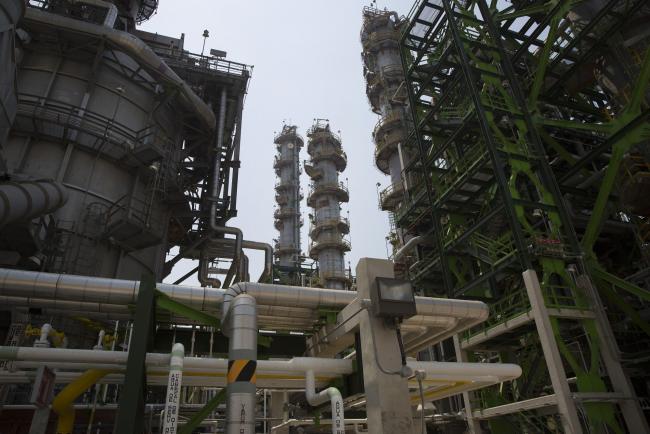(Bloomberg) -- Mexico is on track to cash in on a $6 billion windfall once its massive insurance program against low oil prices kicks in following a dramatic plunge in prices, President Andres Manuel Lopez Obrador said on Wednesday.
For the past two decades, Mexico has locked in its oil revenue via put options it buys from a small group of investment banks and oil companies in what’s considered Wall Street’s largest -- and most closely guarded -- annual oil deal.
The options give Mexico the right to sell its oil at a predetermined price. They are the equivalent of an insurance policy: the country banks all gains from a rally but enjoys the security of a minimum floor. So if oil remains weak or plunges even further, Mexico will still book higher prices.
“We protected the Ministry of Finance,” Lopez Obrador said in Mexico City. “We insured an oil price of $49 a barrel. The hedge will allow us to obtain about 150 billion pesos. We won’t lose money due to the oil-price drop.”
The 150 billion translates to about $6.2 billion at current exchange rates, according to a calculation by Bloomberg News.
The hedge has shielded Mexico in every downturn over the last 20 years: it made $5.1 billion when prices crashed in 2009 during the global financial crisis, and it received $6.4 billion in 2015 and another $2.7 billion in 2016 after Saudi Arabia waged a price war.
Hedge Cost
The operation comes at a cost. In recent years, the nation has spent about $1 billion annually buying the options. Although Mexico in the past disclosed information about its hedge, over the last year it has declared the program a state secret to avoid hedge funds and other speculators trying to profit from it.
“The insurance policy isn’t cheap,” Mexico’s Finance Minister Arturo Herrera told broadcaster Televisa on March 10. “But it’s insurance for times like now. Our fiscal budget isn’t going to be hit.”
Mexico hasn’t disclosed who sold it the put options that the country used to hedge its 2020 oil risk. In the past, it has used some of the top names in Wall Street, including Goldman Sachs Group (NYSE:GS) and JPMorgan (NYSE:JPM) & Chase Co., plus the in-house trading arms of big oil companies such as Royal Dutch Shell (LON:RDSa) Plc.
The Mexican government told lawmakers earlier this year it has guaranteed revenues to support the assumptions for oil prices made in the country’s budget -- $49 a barrel for the Mexican oil export basket, equivalent to about $60-$65 a barrel for Brent crude. The Mexican oil basket fell on Tuesday to $7.12 a barrel.
Mexico locks its crude revenue via two elements: the hedge, and the country’s oil stabilization fund. The fund historically has only provided $2-$5 a barrel, so it’s realistic to assume that Mexico hedged at around $45 a barrel, at least, for its crude. In the past, the country has hedged around 250 million barrels, equal to nearly all its net oil exports in an operation that runs from Dec. 1 to Nov. 30.
On top of its sovereign oil hedge, which is run by the country’s Ministry of Finance and executed by the central bank, the state-owned oil company Petroleos Mexicanos also runs a much smaller oil hedge.
(Updates in ninth paragraph with details of previous counterparties.)
©2020 Bloomberg L.P.
